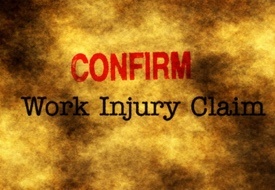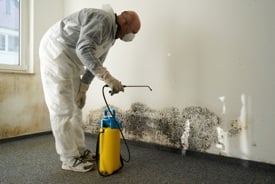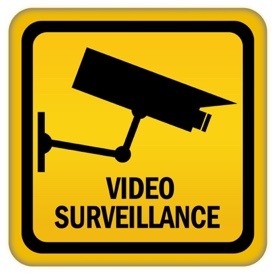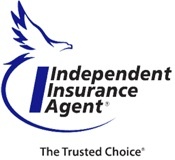 Most medical statistics that you read or hear about are not designed to brighten your day.
Most medical statistics that you read or hear about are not designed to brighten your day.
Well, here’s another one: Once you reach the Medicare-eligible age of 65, you have a seven in ten chance of needing long-term care at some future point. A good long term health care insurance policy can provide both peace of mind and valuable protection against the high cost of care.
Long term care may be provided be at home, in a skilled nursing facility, or in assisted living. It is a surprise to many that the average annual cost of care in a nursing home is a whopping $81,000 for a semi-private room or $90,500 for a private room. Those are national averages, but you can expect similar costs in Philadelphia, Allentown, Reading, Lancaster, Harrisburg, Pittsburgh and elsewhere throughout Pennsylvania.
“Well, so what?” You’re probably thinking. “I might have underestimated the cost of long-term care, but my Medicare will be there to foot the bill.” Well, maybe not
Medicare Falls Short When It Comes to Long-Term Care
It's wise to consider long-term care insurance to supplement Medicare. Here's why: If you are recovering from an acute illness, condition or injury, Medicare will cover the services performed by a skilled medical professional. Your physician must certify to Medicare that these specialized services are necessary and that you are required to be housebound to receive these services. Any custodial care--bathing, eating, dressing, etc.--will be covered by Medicare only if the care accompanies your need for skilled acute care and is concurrent with it.
If you require long-term care in a nursing facility, Medicare will pay at least a portion of your care for up to 100 days, but only after you have satisfied a hospital stay of at least three days and you still need daily medical attention. For instance, physical therapy following a joint replacement or wound care after surgery would qualify.
Note: Medicare will cover 100% of your full costs for the first 20 days only. You are responsible for a co-payment of $157.50 per day on days 21 through 100. If you have Medicare Supplement insurance, it will pick up this co-payment. After 100 days of skilled nursing care, you are on your own for all costs.
Why the confusion over Medicare?
Much of the misunderstanding arises because Medicare helps to cover certain services at home, but only if these services are medically necessary due to an acute medical need. But Medicare specifically excludes from coverage custodial care from chronic and disabling illnesses. As previously noted, custodial care refers to ongoing assistance with the activities of daily living such as bathing, eating, dressing and toileting. Skilled acute care and custodial care are decidedly different, yet skilled nursing facilities and home care agencies provide each type of care, which just adds to the confusion.
What about Medicaid?
People often do not distinguish between Medicaid and Medicare. Medicaid does cover 100% of long-term care custodial costs within a state licensed and certified Medicaid nursing facility. But Medicaid is a program for individuals and families with low income and insufficient resources to pay for health care. Additional confusion comes from not knowing this distinction.
You are responsible for your health care
Long term care can deplete your assets and shift the burden to your loved ones. You can ease these costs by properly planning for your future long-term care insurance needs. Doing so will help to preserve your savings and assets while providing you with options for the type of care that best meets your needs, whether it’s assisted living or in-home care.
Contact Us for Help in Evaluating Your Long-Term Care Insurance Needs
 Seek professional assistance before planning for your long-term care. There are a variety of policies from which to choose, from traditional long-term care insurance to hybrid plans that will return your premium should you not need care. There are also decisions to be made within each policy type that may require expert advice.
Seek professional assistance before planning for your long-term care. There are a variety of policies from which to choose, from traditional long-term care insurance to hybrid plans that will return your premium should you not need care. There are also decisions to be made within each policy type that may require expert advice.
To learn more about long-term care insurance, contact American Insuring Group online or call us at (800) 947-1270 or (610) 775-3848. Call or click today to get started!



 Hiring a competent workers compensation defense attorney is not an exact science, but it is an important first step in the process of defending your business in a contested workers comp claim, which can impact the cost of your
Hiring a competent workers compensation defense attorney is not an exact science, but it is an important first step in the process of defending your business in a contested workers comp claim, which can impact the cost of your  To learn more about controlling your workers compensation insurance cost,
To learn more about controlling your workers compensation insurance cost,  As a small business owner who allows customers and visitors on your property, you assume the responsibility of providing a reasonably safe environment for them. This responsibility includes warning them about any concealed dangerous conditions. In states with “concealed carry” laws, you might need to post warnings that your sales clerks are armed.
As a small business owner who allows customers and visitors on your property, you assume the responsibility of providing a reasonably safe environment for them. This responsibility includes warning them about any concealed dangerous conditions. In states with “concealed carry” laws, you might need to post warnings that your sales clerks are armed. To learn more about Commercial General Liability Insurance,
To learn more about Commercial General Liability Insurance,  Employers and insurance companies have been using functional capacity evaluations (FCE) for over thirty years. In
Employers and insurance companies have been using functional capacity evaluations (FCE) for over thirty years. In  To learn more about workers compensation insurance,
To learn more about workers compensation insurance,  Attention: restoration contractors! You may have lucrative opportunities from an unlikely source—mold. Yes, the fungus that grows in moisture-laden areas of many old homes has created a demand for professional mold remediation services. Done right, you can grow your mold remediation business while controlling your
Attention: restoration contractors! You may have lucrative opportunities from an unlikely source—mold. Yes, the fungus that grows in moisture-laden areas of many old homes has created a demand for professional mold remediation services. Done right, you can grow your mold remediation business while controlling your  To learn more about Commercial General Liability and Contractors Pollution Liability insurance, or for any business insurance need,
To learn more about Commercial General Liability and Contractors Pollution Liability insurance, or for any business insurance need,  Having a freshly constructed building for your business is exciting. It’s the culmination of an undertaking that involved the acquisition of land, working with an architect, hiring a construction company, and picking out the furnishings. After you have completed the project, you will have added a significant investment that you will undoubtedly protect with a well-designed insurance program.
Having a freshly constructed building for your business is exciting. It’s the culmination of an undertaking that involved the acquisition of land, working with an architect, hiring a construction company, and picking out the furnishings. After you have completed the project, you will have added a significant investment that you will undoubtedly protect with a well-designed insurance program. We can help you create a policy that meets the needs of your construction project. As independent insurance agents, we're free to shop among competing providers to help you obtain the best insurance solution at the right price.
We can help you create a policy that meets the needs of your construction project. As independent insurance agents, we're free to shop among competing providers to help you obtain the best insurance solution at the right price. In 1992, 79-year old Stella Liebeck filed a lawsuit against McDonald’s for serving coffee that was too hot. In a product liability case that became known as the “McDonald’s Coffee Case,” the Albuquerque woman sued for injuries she had received after spilling coffee on herself. The basis of the lawsuit centered on insufficient warnings on the cups. After a trial and appeals, the parties settled out of court for an amount of less than $600,000.
In 1992, 79-year old Stella Liebeck filed a lawsuit against McDonald’s for serving coffee that was too hot. In a product liability case that became known as the “McDonald’s Coffee Case,” the Albuquerque woman sued for injuries she had received after spilling coffee on herself. The basis of the lawsuit centered on insufficient warnings on the cups. After a trial and appeals, the parties settled out of court for an amount of less than $600,000. Get the Right Product Liability Insurance
Get the Right Product Liability Insurance  Maybe you’re like many employers who believe that
Maybe you’re like many employers who believe that  Reduce the Cost of Workers Comp Insurance: Get Help From American Insuring Group!
Reduce the Cost of Workers Comp Insurance: Get Help From American Insuring Group!  Experienced small-business owners know that it’s wise to expect the unexpected. Bad things often happen without warning.
Experienced small-business owners know that it’s wise to expect the unexpected. Bad things often happen without warning. To learn more about business liability and commercial property insurance from our independent agents,
To learn more about business liability and commercial property insurance from our independent agents,  Employers have been using cameras and video surveillance in the workplace for many years. In fact, in a 2005 survey, over half of the responding companies indicated they used video surveillance to counteract theft, violence, or sabotage. 16% of those respondents used surveillance to monitor their workers’ performance.
Employers have been using cameras and video surveillance in the workplace for many years. In fact, in a 2005 survey, over half of the responding companies indicated they used video surveillance to counteract theft, violence, or sabotage. 16% of those respondents used surveillance to monitor their workers’ performance. For more information about workers compensation insurance,
For more information about workers compensation insurance, 



